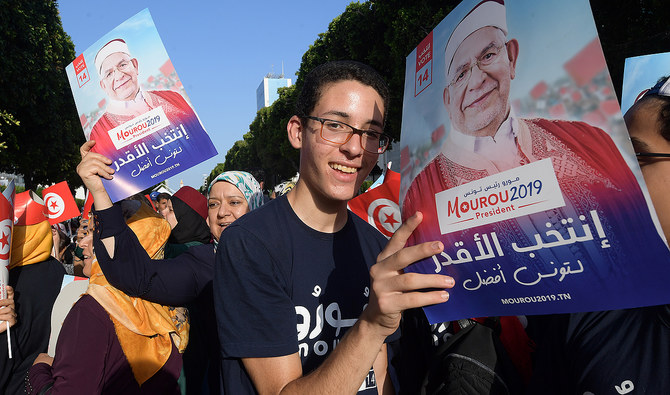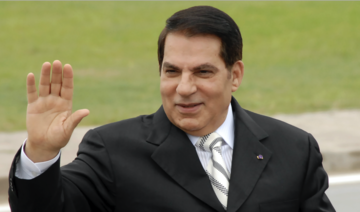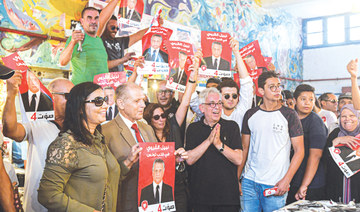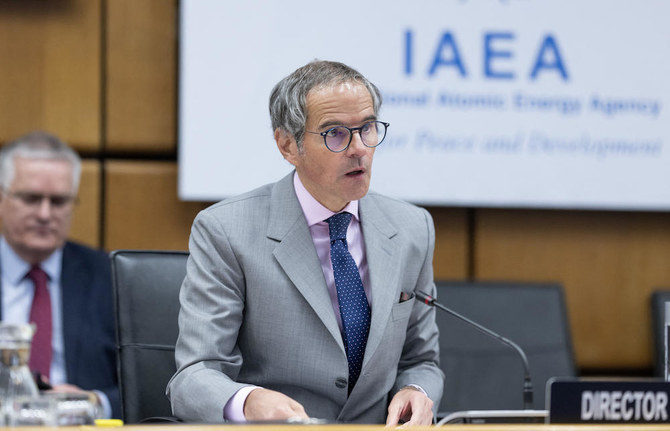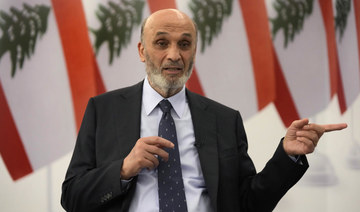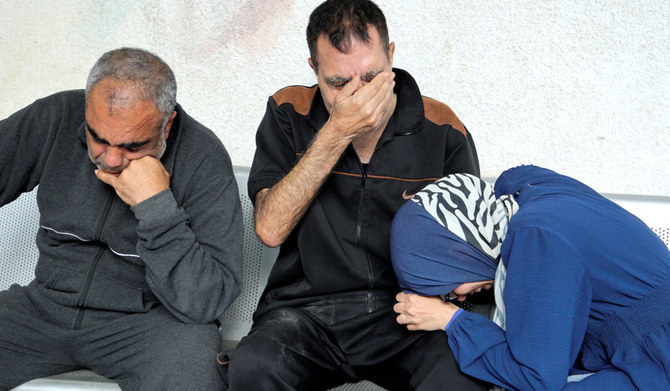TUNIS: Tunisia is holding a cacophonous presidential election this weekend, with voters choosing among 26 candidates for a new leader who can secure the North African nation’s young democracy and tackle unemployment, corruption and the economic despair in its provinces.
Sunday’s first-round vote is only the second democratic presidential election that Tunisia has seen since its “jasmine revolution” brought down Zine El-Abidine Ben Ali in 2011 and triggered the Arab Spring uprisings across the region. While the Arab Spring led to deadly civil wars that still haunt countries such as Syria and Libya, it brought democracy to Tunisia.
The vote is taking place because the country’s first democratically elected leader died in office in July.
Accusations of smear campaigns and corruption are flying as Tunisia’s 7 million registered voters get ready to declare their choices. With so many candidates vying for the five-year term there’s no clear front-runner, although Prime Minister Youssef Chahed, jailed media magnate Nabil Karoui and Abdelfattah Mourou of the moderate Ennahda are getting particular attention.
“The young Tunisian democracy has, like a reed, folded without ever breaking,” said analyst Ahmed Chérif.
Still, the system remains fragile. In addition to Tunisia’s deep economic woes, security is a major concern amid extremist tensions along Tunisia’s borders with Algeria and Libya. A string of deadly attacks in 2015 notably hurt the country’s tourism sector, crucial to this small Mediterranean nation that lacks its neighbors’ oil wealth.
Given the plethora of presidential hopefuls, uncertainty dominates the election — which was thrown further into disarray by last month’s arrest of Karoui, considered a top contender.
He is charged with money laundering and tax evasion, but allowed to stay in the race as long as he hasn’t been convicted. He denies wrongdoing and accuses the prime minister of a smear campaign. On Thursday, he announced a hunger strike, demanding to be released for the election.
Karoui promises to fight poverty and launched a charity in 2016 in honor of his son, who was killed in a car accident, which collects donations for the poor through his Nessma TV channel. Critics accuse Karoui of exploiting the poor to earn their votes.
The campaign has included Tunisia’s first televised presidential debates, which have brought attention to lesser-known candidates. Still, only a minority have “profiles and skills that meet the criteria required,” said political scientist Salah Horchani.
Among them is Chahed, the 44-year-old outgoing prime minister who boasts of “saving the country from bankruptcy” during his three years as head of government, with economic indicators showing signs of improvement thanks to what he calls his “courageous reforms.”
His main competitor is none other than his own defense minister, Abdelkrim Zbidi, who calls himself independent but is supported by several centrist parties, including that of late President Beji Caid Essebsi.
The defense minister promises to “improve the morals of public life,” and accuses the prime minister of exploiting his office for electoral gains.
These two could be surprised, however, by Islamist candidate Mourou, vice president of the Ennahdha party, currently the largest single force in Tunisia’s Parliament.
Mourou, 71, said recently that he thought his age and health meant he could “no longer bring anything to Tunisia.” But he was convinced to run for president by Ennahdha leader Rached Ghannouchi, who’s hoping Mourou can unify the party’s broad base. The party ran the government from 2011-2014 but its leadership led to an acute political crisis and rising fundamentalism.
Two women candidates say it’s time for a female president in a country that’s long had greater women’s rights than neighboring countries. Candidate Abir Moussi has seen a rise in support after her tough criticism of Tunisia’s Islamists.
Among the underdogs is former Prime Minister Mehdi Jomaa, appointed to the post thanks to a special agreement among four groups that won the Nobel Peace Prize in 2013 for saving Tunisia’s democracy amid its political crisis.
Results of the first round are expected Monday or Tuesday. If no candidate wins more than 50 percent of the vote on Sunday, the election goes to a second round that must be held no later than Nov. 3. The date of the runoff will be announced once the final first-round results are declared.
The new president’s success will depend on having support in Parliament — which is having its own election on Oct. 6.



